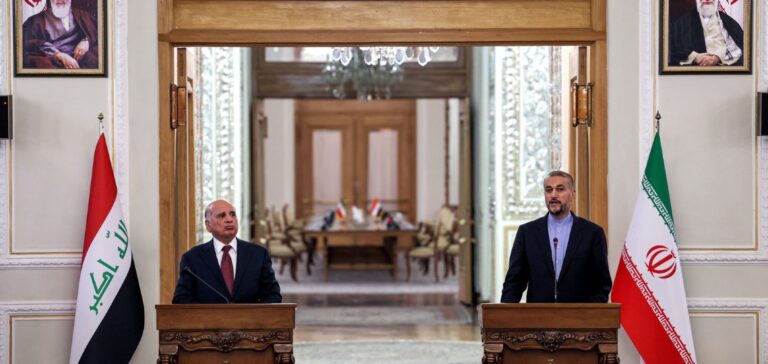An influential coalition of pro-Iran Shiite parties in Iraq on Sunday called on the government to call on the United States to release outstanding payments to Tehran in exchange for crucial gas imports. Because of US sanctions against Tehran, Baghdad cannot pay for its gas imports in cash: the money must be used by Tehran to buy goods from the agri-food or pharmaceutical sectors.
Persistent delays and pressure: Tensions over Iraq to settle Iranian gas debts and avoid power cuts.
The process is always very arduous, and one delay follows another. To force Baghdad to pay its outstanding bills, Tehran regularly suspends its gas supply. So crucial, since it ensures the operation of Iraq’s power plants and covers a third of the country’s needs.
On Sunday, the Cadre de Coordination issued a statement condemning major power cuts coinciding with “rising temperatures”. The coalition of Shiite parties that dominates parliament “calls on the government, via the Ministry of Foreign Affairs, to contact the American side to urge the immediate release of outstanding payments linked to Iranian gas imports”. The Coordination Framework includes former Prime Minister Nouri al-Maliki, but also the political showcase of the former Hachd al-Shaabi paramilitaries.
At the end of June, Ministry of Electricity spokesman Ahmed Moussa assured AFP that his ministry had deposited all Iranian gas payments with the Trade Bank of Iraq (TBI) trust fund. These payments amounted to “$11 billion”. But because of US sanctions, any payments to Tehran must be authorized by a US exemption.
Payment authorized by the United States: Pressure on Iraq to settle Iranian gas debts and limit energy dependence
On June 13, the United States confirmed that it had authorized a certain payment, without disclosing the amount.
“We have approved a transaction, consistent with previous transactions that had been approved, to allow Iran access to funds held in accounts in Iraq,” said a State Department spokesman, Matthew Miller.
This is a highly sensitive issue for Iraq, where the hot summer weather is worsening the daily power cuts. Sometimes provoking demonstrations in a country with a decaying infrastructure and plagued by corruption.
To limit their dependence on Iranian gas, the Iraqi authorities are exploring several avenues: sourcing from Gulf countries, notably Qatar, and locally exploiting gas from oil production, currently flared using the highly polluting practice of gas flaring.






















